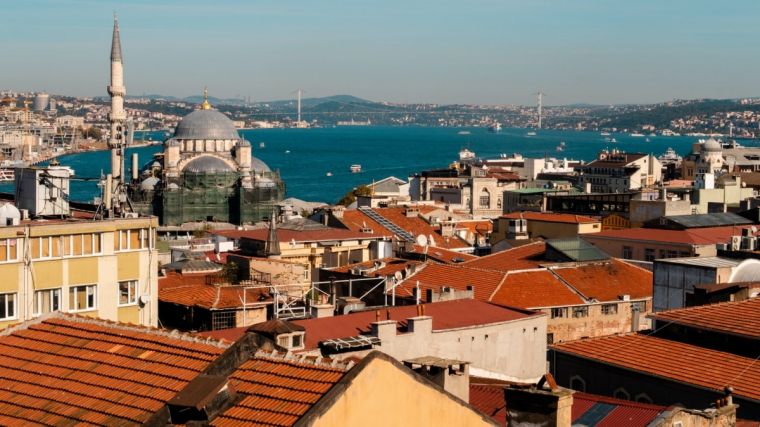Christian banned from Turkey appeals to European Court of Human Rights

(CP) A British woman has joined a growing list of Christians banned from entering Turkey and is now challenging her de facto ban before the European Court of Human Rights, countering the country's unlawful practice of banning foreign Christians and missionaries by designating them as security threats.
Rachel and Mario Zalma resided in Turkey for over a decade; however, they were compelled to return to the UK after Turkish officials designated Mario with an "N-82" security code in 2019 and Rachel in 2020, said the human rights group ADF International, explaining that this code signifies that an individual is considered a "threat to public order and security."
"We are filing Rachel Zalma's case before the ECHR to challenge Türkiye's discriminatory treatment of Christians," ADF International's Legal Officer Lidia Rieder said in a statement. "We hope the court will hold Türkiye accountable so Christians can once again live their lives without the threat of deportation or unchallengeable re-entry bans hanging over them."
The Christian couple discovered that many who had attended a family conference of the Association of Turkish Protestant Churches in 2019 had also been labeled with the N-82 code.
At least one man received proof that he was classified as a security threat because he attended the conference. In documents disclosed during court proceedings in his case, the Turkish national intelligence agency revealed that it was determined that he was operating against our national security because he was one of the foreign nationals who attended the conference.
"Regrettably, Turkish authorities continue to undermine religious freedom by deliberately attempting to stifle the spread of Christianity," Rieder said.
Both Rachel and Mario challenged their N-82 labels up to the Constitutional Court of Türkiye, but their cases were rejected, which forced them to return to live in the UK.
At a high-level event on "Freedom of Religion in Türkiye" held at the European Parliament in October 2022, victims of faith-based discrimination highlighted human rights violations committed by the Turkish government and parts of society against Christian minorities in the country.
Reflecting on his experience living in Turkey, Mario Zalma said, "We love the country of Türkiye and want to work for the good of its people. We are not a threat to the state, the country, or the Turkish way of life."
The number of Christians in Turkey has dwindled from 20% to 0.2% of the population in the last 100 years, ADF International said, attributing this decline partly to the Turkish government's systematic ill-treatment of Christians.
According to Open Doors, the Turkish government expelled at least 60 foreign Christian workers and their families between 2020 and 2022.
In February 2021, a Canadian-American Christian named David Byle was forced to leave Turkey after 19 years because of his evangelistic work and filed a deportation complaint with the ECHR.
Though missionary activity is legal in Turkey, authorities alleged Byle, a street evangelist who had been arrested and previously detained, was a threat to public order and security and imposed a permanent re-entry ban on the Christian.
Turkey has a longstanding history of deporting "active" expatriate Christians categorized as missionaries, but relatively few Christians were expelled, Morning Star News noted in 2021, reporting on the case of a German pastor fighting expulsion from Turkey at the time.
After a coup attempt in the summer of 2016, the government of President Recep Tayyip Erdogan ratcheted up the number of Christians identified for possible expulsion or denied entry into Turkey, added MSN, which monitors Christian persecution.
"Erdogan and his Justice and Development Party also allied themselves with Turkish nationalists who have long seen Christians as secret agents of foreign governments bent on undermining Turkey and a Turkish 'Manifest Destiny' throughout the Middle East and Europe, with adherence to Sunni Islam seen as a crucial element."











